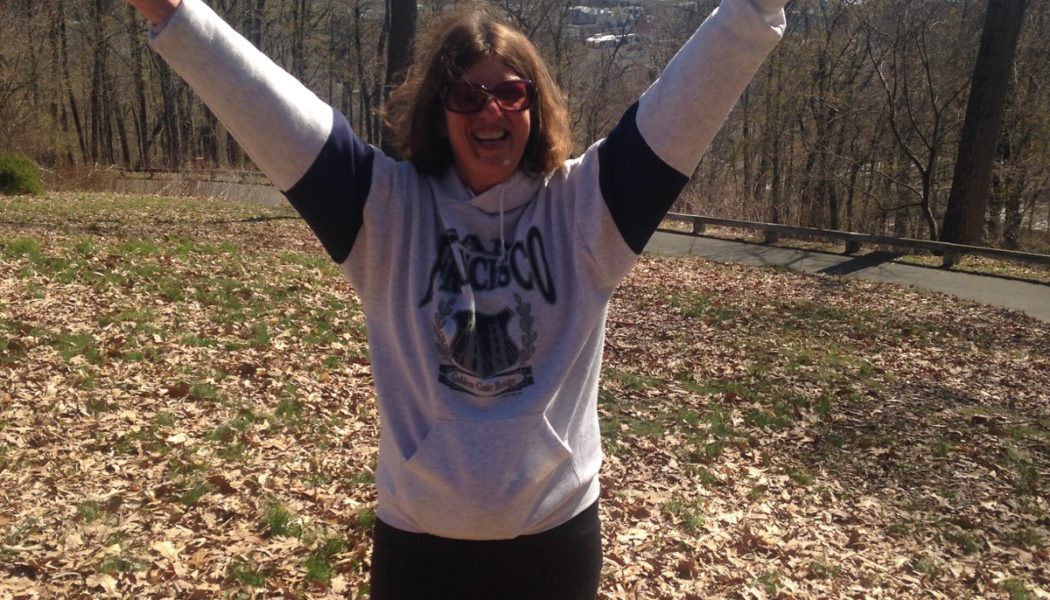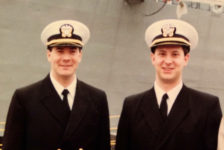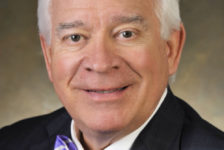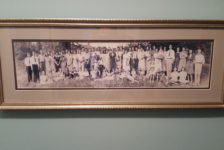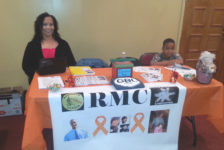Deb Gottsleben is co-chair of the KCCure Patient Advisory Board and a passionate advocate for better care for patients with newly diagnosed renal tumors. Read her story about how she became involved with KCCure!
My story is very unusual for people on this site. I am very lucky and feel blessed I don’t actually have kidney cancer but when you hear my story you will understand why I decided to become involved in groups advocating for more funding for research as well as on patient advocacy and support sites.
My journey began when my family doctor ordered an ultrasound of my kidneys because of my family history. My mom had kidney cancer and 2 of my aunts were diagnosed with kidney cancer but were later found to have benign tumors. I was feeling great, and had no symptoms, so when I went for the ultrasound, I wasn’t at all worried. A few days later, the doctor’s office called to say that they found a cyst in my right kidney and while it appeared to be nothing, they thought because of my family history I should go for a CT scan. I went for that scan totally unconcerned because I was certain it would just confirm that I had a cyst.
A few days before Thanksgiving 2015 my world turned upside down. My doctor called and left a message to call her back immediately on her cell phone number. I knew as soon as I heard that message that the news wasn’t going to be good. When I called back, I found out I had 3 tumors on my left kidney. I asked my doctor if they thought I had cancer. She then said they don’t think you have cancer, you definitely have cancer. She told me that I needed to get to a urologist immediately and gave me a name to call.
Well, if I thought the news was bad it just got worse when I saw the local urologist. He stated I was the worst case he had ever seen. When I asked if there was any chance I could have the type of tumors my aunts have (oncocytomas), he practically screamed at me that I absolutely did not have what my aunts had; it was definite that I had cancer. He said he’d try to do a partial nephrectomy, the first time I had heard that you might not need to lose your kidney. Before I even had a chance to savor that positive thought, he told me that my surgery was so complicated that it was more likely I’d lose my kidney. He then went on to say I had a tumor on my right kidney too so I’d eventually lose that one as well. I left the office absolutely shaken but remembered that I had previously contacted the NIH because I had thought that my mom and her sisters all having kidney cancer might be genetic. A few days later, the local urologist I had seen called me to tell me he had reconsidered my situation. I was sure he was going to tell me I could have the same type of tumors as my aunts, but instead he told me I had lymphoma and needed to be on chemotherapy. That was supposed to be good news!
I called the NIH and was told I qualified for a study there because my condition did appear to be genetic. I knew I was never going back to the local urologist I had seen, so when I was told by one of the doctors at the NIH that I was definitely not the worst case they had ever seen, they had in fact had patients with many more tumors than I had, and that I wouldn’t lose my kidney, I decided to have the surgery there. Surgery was a few months later in March of 2016. When the pathology report came back it confirmed that I did indeed have what my aunts have – I actually had 5 tumors, not 3, and all 5 tumors were oncocytomas.
While I recovered quickly from surgery I was really frustrated that there is no diagnostic test to accurately stage and stratify tumors in kidneys. There are biopsies but they can be highly inaccurate and miss some cancers. I’ve since found out that some researchers are looking for ways to do this. There is one test that was developed recently at Johns Hopkins called a sestamibi scan, which can very accurately distinguish between a tumor that is an oncocytoma versus one that is cancerous and can possibly even show how aggressive some tumors are. Some researchers are looking at ways MRI’s can be used for this same purpose. Other researchers are looking into blood and urine tests that will be able to do this as well. Hopefully research in this area will lead to better ways to decide on treatment plans for all patients with kidney tumors.
While I am forever grateful that my tumors weren’t cancerous, I know how fortunate I was to get to a facility that was able to handle more complicated cases. I wish that I could say that I did my research and to a certain extent I did, but I also know that had I liked the first urologist I saw, I probably would have just gone along with his plan. These are my words of advice: always get at least one other opinion if not 2 or 3; if your case is complicated, try to get to an academic/research facility.
I’m hoping that through organizations like KCCure we will find better treatment options so that everyone will get the appropriate level of treatment they need.

